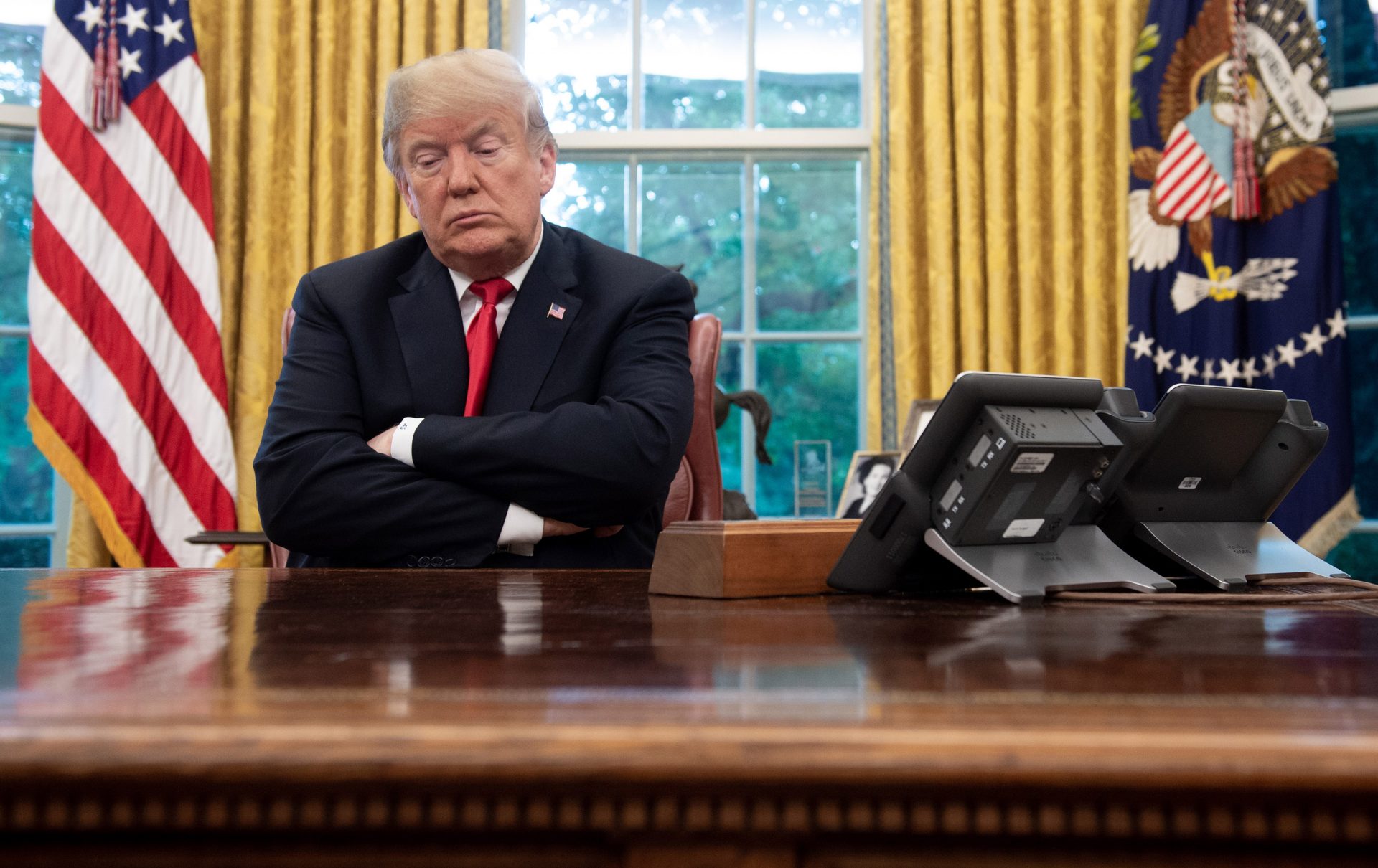By Jason Leopold and Laura Davison, Bloomberg News (TNS)
Donald Trump demanded reams of information from the IRS as it was preparing to turn over his personal tax returns to a congressional committee, papering the agency with a deluge of Freedom of Information Act requests in search of a behind-the-scenes look at its deliberations, new documents show.
The former president routinely works to drag out any legal challenge to him personally or politically. But this effort took an unusual turn when he filed several FOIA requests during the nearly four years he spent unsuccessfully trying to block his tax returns from becoming public.
Trump’s decision to use the public records request law to get information from his own government is unconventional, largely because as commander in chief and leader of the executive branch he has numerous options to get data from federal agencies that don’t require him to use a last-resort tool available to anyone.
For example, the U.S. tax code gives the president special permissions to request taxpayer information from the IRS. Ironically, it’s that same section of the tax law that also gave House Democrats the authority to request Trump’s tax returns in April 2019.
Trump also appeared to be ready to pay for the paperwork: His lawyers said in the request that they would pay up to $30,000 in processing fees, an amount significantly higher than the $25 agencies typically request to furnish the records.
Trump filed two FOIAs in June 2019, a few months after Democrats first sought the documents, and a few weeks before then-House Ways and Means Chairman Richard Neal sued the Treasury Department and the IRS for the tax returns. The legal fight was resolved in late December 2022 when Democrats, days away from relinquishing their power as the majority party, made six years of Trump’s personal and business tax returns publicly available.
The thousands of pages showed that Trump was able to use tax benefits to pay little to no federal income taxes from 2015 to 2020. Despite his tax returns containing dozens of potential audit risks, the IRS never completed an examination of Trump while he was in office, according to the final report of the Democrats’ investigation.
Buried deep in that long-awaited report last month, the House Ways and Means Committee said without elaboration that Trump had taken “certain actions,” including FOIA requests, to delay the IRS’s review that ended with the release.
In response to a FOIA request from Bloomberg News to see Trump’s FOIA requests, the IRS turned over copies of two requests sent in June 2019, drafted for Trump by attorney William F. Nelson, a partner at Morgan Lewis and a former chief counsel at the IRS during the Reagan administration.
The IRS declined to share the documents it produced for Trump, if any, on privacy grounds because it involved his tax information.
Nelson didn’t immediately respond to messages seeking comment.
In the first request, Lewis asked the IRS for a wide range of communications from IRS Commissioner Charles Rettig, a Trump nominee, and other top IRS officials “in connection with the disclosure or potential disclosure of any taxpayer materials” related to the Democrats’ request.
Trump’s lawyer also asked for any records the IRS gave to Sen. Ron Wyden, the top Democrat on the Senate Finance Committee, about a confidential draft memo the IRS prepared in anticipation of Congress’ requests for Trump’s tax returns. Wyden had earlier sent a letter to the IRS asking if the memo contradicted the Treasury’s Department’s position on disclosure requirements.
Trump also sought all records from the IRS about a May 21, 2019, story in The Washington Post that first disclosed the existence of the draft memo.
Trump also wanted the IRS to show him any documents related to the IRS’ “consideration of the potential disclosure of taxpayer’s tax returns” and records about “tax procedures specific to the president of the United States, including, but not limited, the application of 6103,” the section of the tax code that governs the release of taxpayer data.
Yet another request Wilson filed on behalf of Trump asked for more communications from IRS officials as well as any records of a three-hour briefing IRS officials gave the Ways and Means Committee on June 10, 2019, on the presidential audit process.
Tax lawyers often use FOIA requests to obtain information about internal deliberations over penalties, the appeals process and other tax matters at the IRS, said David Shuster, the tax controversy leader at accounting firm Marcum. But it’s very rare for the FOIA request to come from a sitting president, he said. Shuster also said the most the IRS has every charged him to process a records request is about $8.
“This is very unusual situation, no question about it,” Shuster said.
_____
©2023 Bloomberg L.P. Visit bloomberg.com. Distributed by Tribune Content Agency LLC.
Thanks for reading CPA Practice Advisor!
Subscribe Already registered? Log In
Need more information? Read the FAQs




